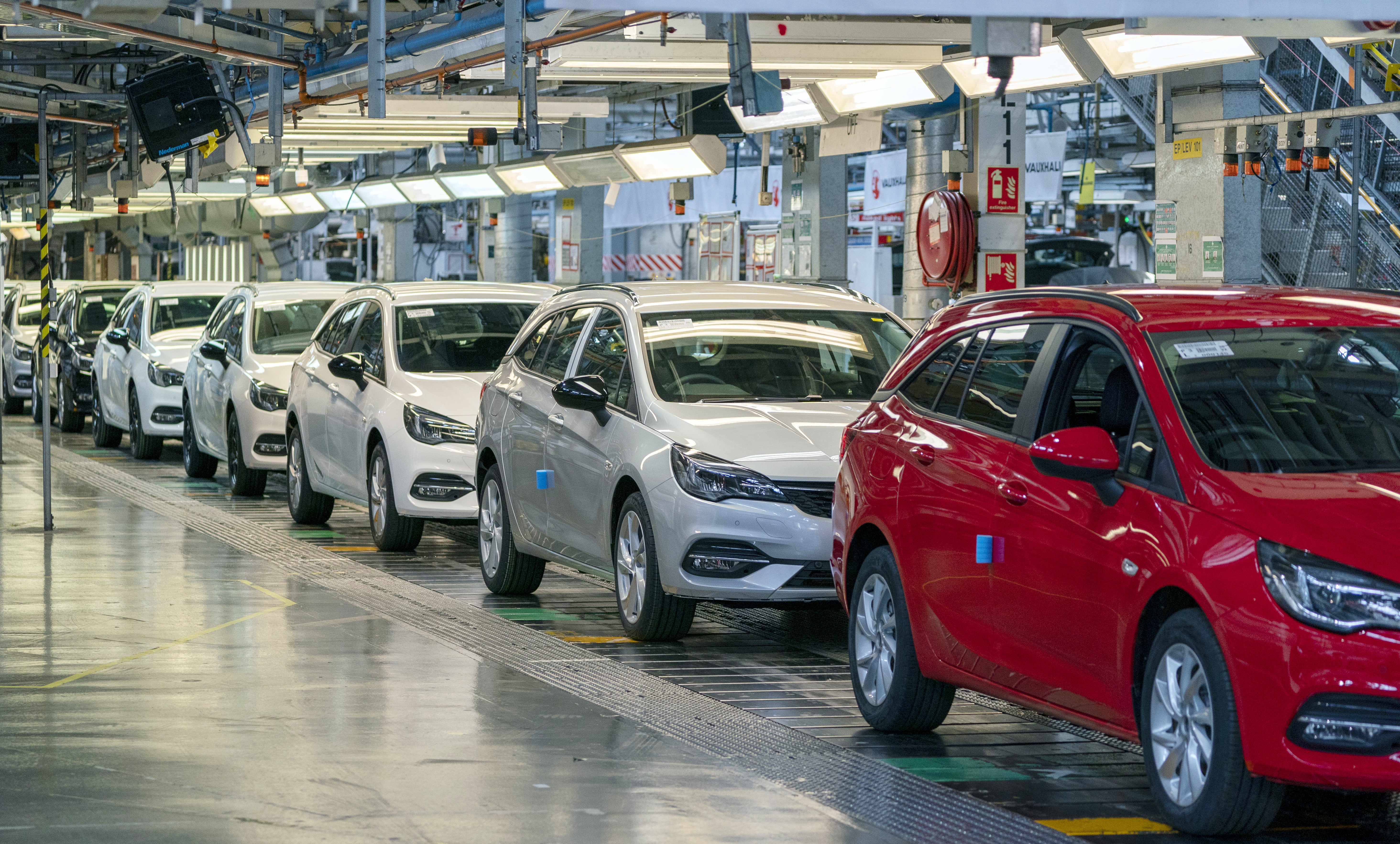Car industry says it faces 50% increase in energy bills
Analysis by the sector found its annual energy costs will rise by £90 million in 2022.

Your support helps us to tell the story
From reproductive rights to climate change to Big Tech, The Independent is on the ground when the story is developing. Whether it's investigating the financials of Elon Musk's pro-Trump PAC or producing our latest documentary, 'The A Word', which shines a light on the American women fighting for reproductive rights, we know how important it is to parse out the facts from the messaging.
At such a critical moment in US history, we need reporters on the ground. Your donation allows us to keep sending journalists to speak to both sides of the story.
The Independent is trusted by Americans across the entire political spectrum. And unlike many other quality news outlets, we choose not to lock Americans out of our reporting and analysis with paywalls. We believe quality journalism should be available to everyone, paid for by those who can afford it.
Your support makes all the difference.UK vehicle-makers face a 50% increase in energy costs this year, an industry body has warned.
Analysis by the Society of Motor Manufacturers and Traders (SMMT) stated that the sector’s annual energy bill – which is already £50 million more than its European Union rivals – will rise by £90 million in 2022.
UK electricity prices are the most expensive of any European automotive manufacturing country and 59% above the EU average, according to the SMMT.
Help with energy costs now will help keep us competitive
The industry body said this means UK firms could have saved nearly £50 million annually if they were buying energy in the EU even before this year’s spike in prices.
The additional cost of producing vehicles and components in the UK is putting manufacturers at a competitive disadvantage, the SMMT warned.
Speaking at the organisation’s annual summit in central London, SMMT chief executive Mike Hawes said challenges such as the coronavirus pandemic, parts shortages and trade uncertainty are “immense”, but addressing the UK’s high energy costs is “the industry’s number one ask” as they are hitting manufacturers “extraordinarily hard”.
The Government must do “all it can to create stability and help keep us globally competitive”, Mr Hawes said.
He welcomed the news electric vehicle battery manufacturers are benefitting from support as energy intensive businesses.
But he said manufacturers are not benefitting from a cap on prices, and “we need energy costs to be competitive for all the automotive industry”.
Mr Hawes said inflation, energy shortages, rising fuel prices and the cost-of-living crisis give the impression the UK faces “the return of the 1970s”.
He acknowledged the automotive industry is being “hit hard just like it was hit then”, but he insisted there is a “big difference”.
He said: “Go back to the ’70s, typified by poor management, poor labour relations, hence poor quality. That’s not the situation now.
“We have a global reputation for engineering excellence, innovation, admired and desirable brands from across the country.
“We have a strong foundation. We’re still a powerhouse of international trade, with great wealth, contributing billions to the economy and supporting thousands of livelihoods in every corner of the country.”
But circumstances in recent years “have not been easy”, with Brexit a “trauma” that is “not yet done”, he added.
In a pre-recorded video message, Chancellor Rishi Sunak told the audience of automotive leaders that the sector is “incredibly important to the UK economy” and “that’s why the Government is doing more to support you”.
He said this includes a commitment for £2.5 billion of investment since 2020 to support the transition to zero emission vehicles.